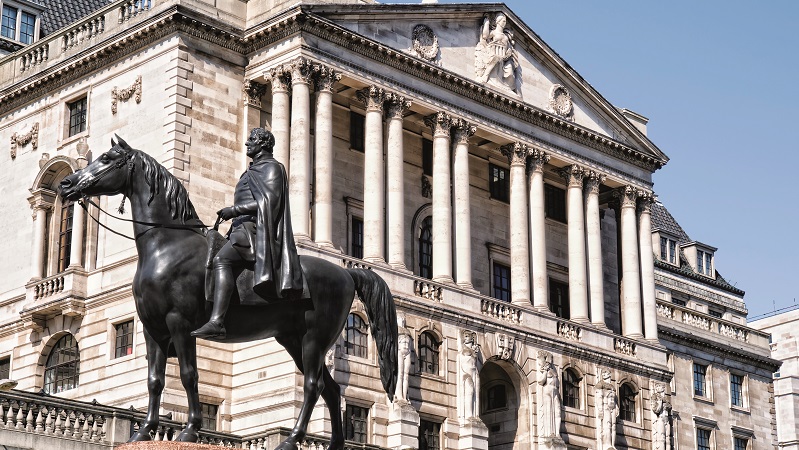The Bank of England base rate ticked up to 0.75% on Thursday, the third time in a row the central bank has ratcheted up the dial.
The move had already been priced in by markets and followed the US Federal Open Market Committee (FOMC) raising rates on Wednesday for the first time since 2018.
It sees the BoE base rate return to its pre-pandemic level, but against a much more alarming financial and geopolitical backdrop.
Quilter Investors portfolio manager Paul Craig said the BoE had to no choice but the keep raising rates as it looks “to build some insurance now should there be a slowdown in economic growth or employment comes in worse than feared”.
He said the central bank started its fight against inflation when it raised rates in December. “This is the next step in what is becoming a protracted story in containing inflation at an appropriate level. It is now seeing inflation hit 8% in the second quarter and perhaps even higher in the second half of the year. Ultimately a double-digit inflation rate is not off the cards.”
‘Rather weak response’
The vote ended 8-1, with one Monetary Policy Committee member, Sir Jon Cunliffe, backing no change to policy.
Abrdn investment director James Athey said Cunliffe’s stance “adds a more significant dovish twist” to the rate hike.
“While the growth/inflation trade-off faced by the bank is far from ideal, real wages are being squeezed by the cost-push nature of the inflation we are seeing. It is true that measures of inflation expectations and inflation compensation are already reflecting the more inflationary environment the UK faces.
“Furthermore, when faced with the opposite of this scenario in the past, the bank was consistently and repeatedly keen to prioritise the role that inflation expectations may play in future outcomes regardless of the underlying cause of what was then a disinflationary environment.
“This inconsistency is neither helpful nor productive. The reality is that inflation is headed towards 10% and the bank has a mandate to deal with that. To be backing away from this duty with interest rates still below 1% feels irresponsible and raises questions about the bank’s inflation-fighting fortitude.
“We shouldn’t be surprised to see longer dated breakeven rates rising further as investors digest this rather weak bank response,” Athey added.
Hawk takes flight
Chris Beauchamp, chief market analyst at IG Group, said the change in language from the MPC has not “helped the pound hold its nerve”, after it saw sharp drops against the dollar and euro.
He said the “shift in voting and the apparent disappearance of the hawkish caucus from last time around, plus the change in language around further tightening suggests that the developments of recent weeks means that a ‘wait and see’ strategy now prevails on Threadneedle Street”.
“That is fair enough, given all the developments, but it means a slower response to inflation and more pressure on consumer spending. Ultimately, whichever way they moved would have brought criticism about its impact on household spending and the broader economy, but the bank seems to think erring on the side of caution is its best plan for now.”
Despite the departure of the hawkish tone, markets still expect the BoE base rate could hit 2% by the end of the year.









